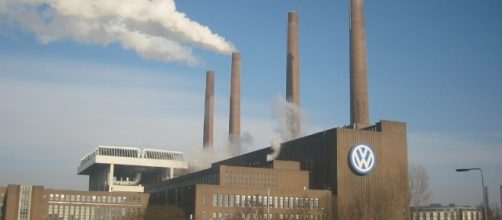Five top German Automakers have carefully coordinated their activities for years in violation of a host of anti-Cartel laws, a report last month by the magazine Der Spiegel revealed.
Volkswagen, Daimler, BMW, and Volkswagen group subsidiaries Audi and Porsche “engaged in anti-competitive behavior,” Der Spiegel said, quoting a statement to German authorities prepared by Volkswagen. The statement did not specify when the cooperation among the supposed industry rivals began, but said it had been going on “at least since the 1990s.”
The magazine said that Volkswagen and Daimler both provided details to investigators in hopes of reducing the eventual legal penalties the companies face.
Under German law, the first participant in illegal activity to cooperate with authorities is entitled to lesser punishment. With each of the companies potentially facing billions of euros in fines and other sanctions, Volkswagen also asked the authorities for smaller penalties against its Audi and Porsche subsidiaries, Der Spiegel reported.
1,000 meetings
The five automakers conducted more than 1,000 meetings in the past five years, Volkswagen told authorities. The meetings were carried out by about 60 working groups comprising representatives of each of the companies, and addressed virtually every aspect of their business. One mundane example provided by Der Spiegel to illustrate how detailed the collusion between the manufacturers was is the fact that none of the convertibles produced by them can open or close its top at speeds above 30 miles per hour – this was agreed by the five automakers to prevent an “arms race” in technical specifications.
The automakers were also clearly aware that what they were doing was a violation of anti-cartel and competition regulations, Der Spiegel explained, pointing out several instances in the Volkswagen disclosure where legal experts working for the companies expressed concerns, and even prevented some actions by the manufacturers.
Other matters the automakers agreed on included technical details of things like braking systems and safety equipment, parts and components suppliers, and pricing, the report said.
Source of the ‘Dieselgate’ scandal
The report makes it clear that the cartel was the source of the scandal that erupted last year when it was discovered Volkswagen had installed software to cheat emissions tests of its diesel engine equipped cars.
The controversy began when the five automakers agreed to limit the size of the “AdBlue” tanks – containers of urea, which helps to reduce nitric oxide emissions when mixed with diesel fuel – in their cars, Der Spiegel explained. Because the cars then could not carry enough of the solution to allow both adequate emissions reduction and reasonable driving range, the software fix first discovered in Volkswagen cars was implemented. It allowed diesel-equipped cars to pass emissions tests by detecting when the engine was being tested and injecting more of the urea solution, while reducing it to extend driving range at other times. As a result, engines configured with the software produce more nitric oxide emissions than advertised.
Volkswagen has been forced to recall and repair hundreds of thousands of its vehicles because of the emissions cheat, and has been hit with billions in fines in both the US and Europe. The scandal had a significant impact on Volkswagen’s sales; it was replaced as the world’s largest automaker by Japanese rival Toyota.
The implication of Volkswagen’s disclosure is that all five of the manufacturers likely implemented the same software cheat to skirt emissions regulations. That presumption was reinforced last month when Daimler announced a recall for three million vehicles to fix emissions performance. Audi likewise has issued a similar recall for 850,000 of its diesel-equipped cars.
While the investigation by German authorities is ongoing, the disclosures by Volkswagen and Daimler may also trigger new inquiries in the European Union and the US, the biggest market for all five of the cartel members. The Der Spiegel report also noted that all five of the manufacturers refused to answer questions about the cartel, in spite of Volkswagen’s and Daimler’s cooperation with authorities.


